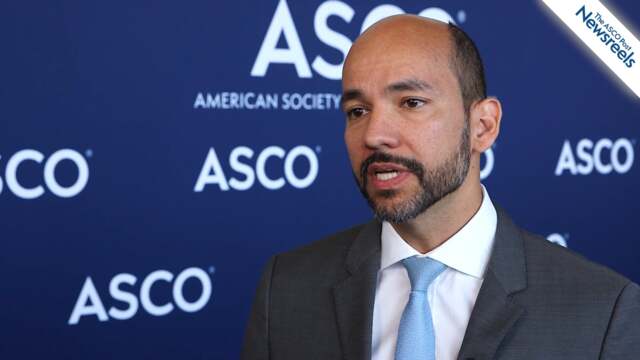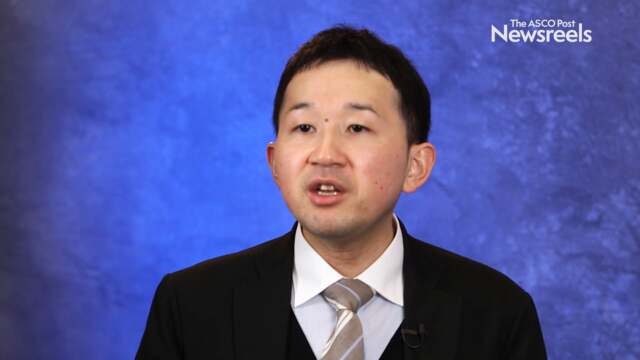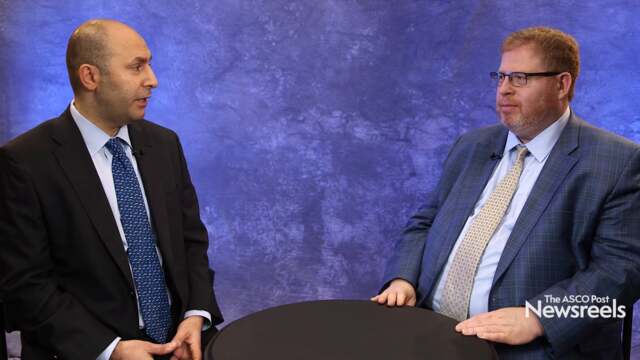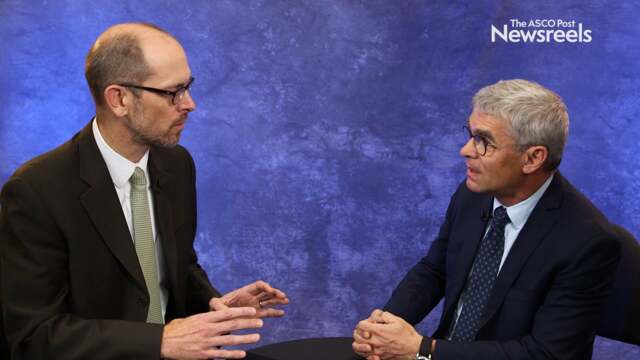Ryan D. Nipp, MD, on Electronic Symptom Monitoring: Trial Results
2018 ASCO Annual Meeting
Ryan D. Nipp, MD, of Massachusetts General Hospital, discusses study findings on electronic symptom monitoring vs usual care to assess whether the intervention, tested in hospitalized patients with advanced cancer, can improve symptom burden and reduce the risk of readmission (Abstract 10005).
Gilberto Lopes, MD, MBA, of the Sylvester Comprehensive Cancer Center at the University of Miami, discusses phase III findings on pembrolizumab vs platinum-based chemotherapy as first-line treatment for advanced/metastatic non–small cell lung cancer with a PD-L1 tumor proportion score ≥ to 1% (Abstract LBA4).
Naoki Furuya, MD, PhD, of the St. Marianna University School of Medicine, discusses phase III study findings on a comparison of bevacizumab plus erlotinib to erlotinib in patients with untreated non–small cell lung cancer with activating EGFR mutations (Abstract 9006).
Peter Schmid, MD, PhD, of Queen Mary University of London, discusses phase II study findings on AZD5363 plus paclitaxel vs placebo plus paclitaxel as first-line therapy for metastatic triple-negative breast cancer (Abstract 1007).
Toni K. Choueiri, MD, of Dana-Farber Cancer Institute, and Jonathan E. Rosenberg, MD, of Memorial Sloan Kettering Cancer Center, discuss their perspectives on the top abstracts in bladder cancer presented at the 2018 ASCO Annual Meeting (Abstracts 4507, 4506, 4503, 4504).
Michael J. Overman, MD, of The University of Texas MD Anderson Cancer Center, and François Quenet, MD, of the Institut Régional du Cancer de Montpellier, discuss phase III study findings on hyperthermic intraperitoneal chemotherapy for colorectal peritoneal carcinomatosis (Abstract LBA3503).





